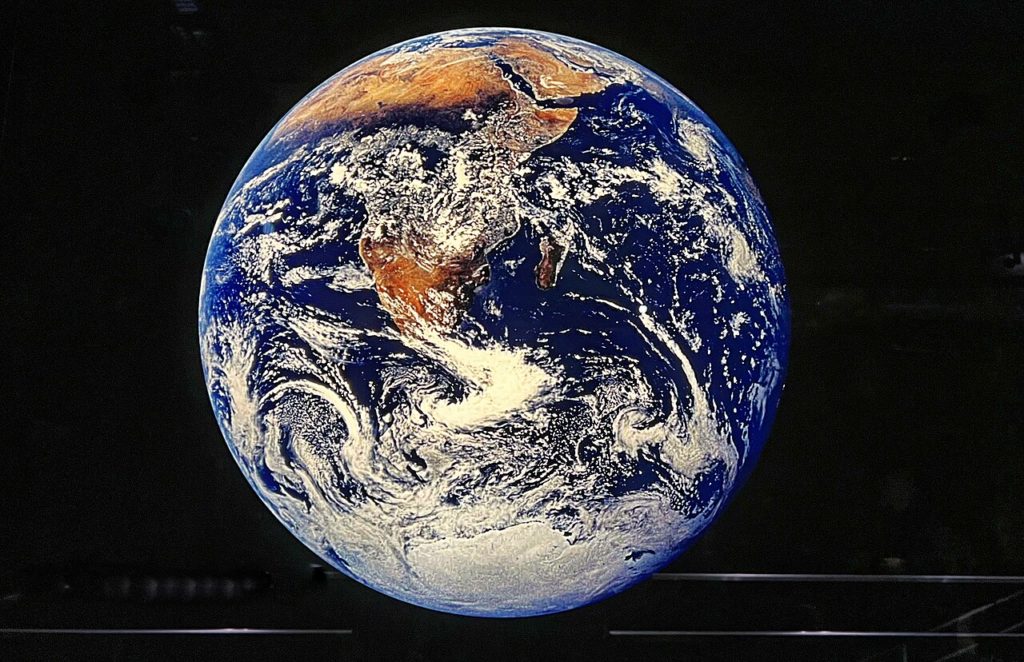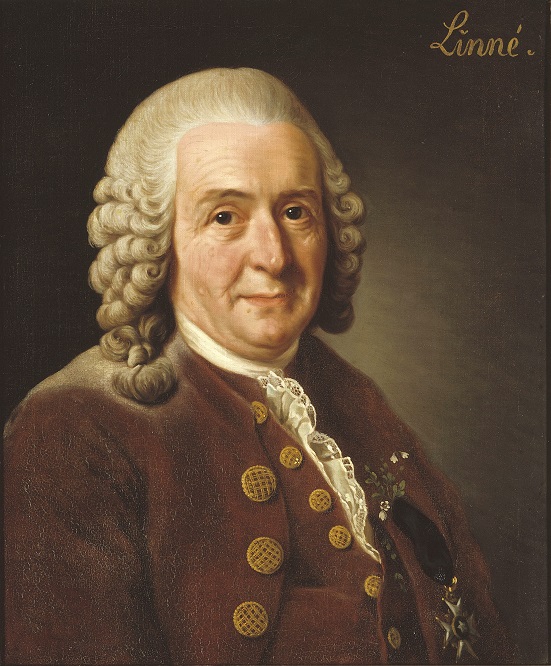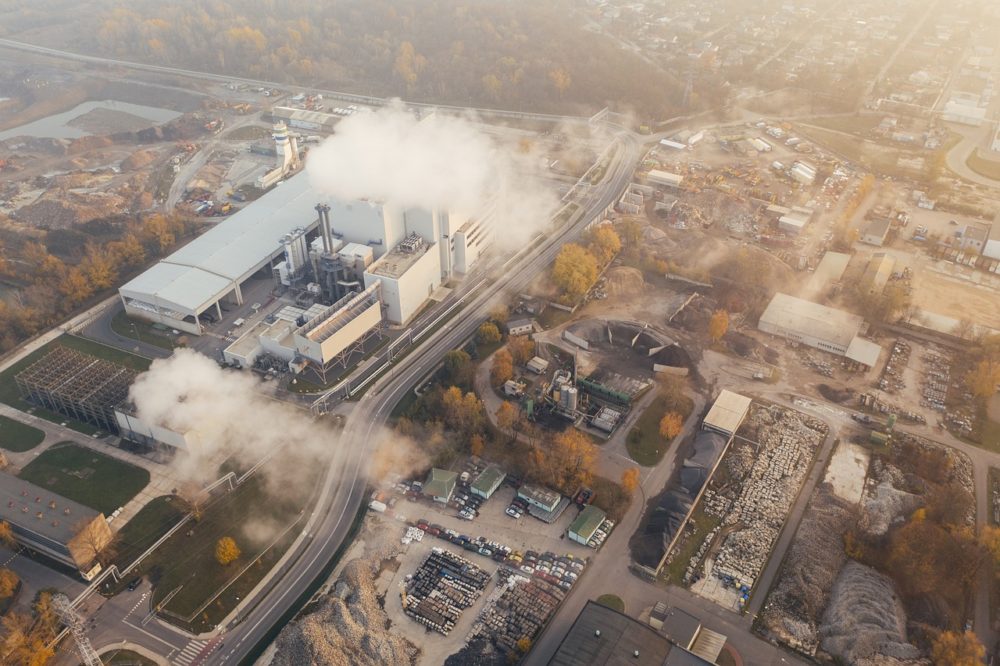The History of Energy part eight: Our future?

We conclude the series in which Gareth Wyn Jones, Professor Emeritus of plant biology and bioscience at Bangor University considers the history of energy and asks what lessons it holds for today’s world. This is article number eight.
Gareth Wyn Jones
It is not so difficult to see why progress in cutting greenhouse gas emissions to date been so slow. The deniers were ploughing and sowing doubt in fertile ground.
Our society, politics and economy are based on cheap, convenient energy, as we saw when first discussing Ukraine and the Russia invasion in article one.
Fossil fuels might have fuelled wars and given status and power to unsavoury tyrants and tycoons but they have been the source of many benefits and lesser fortunes.
Cheap energy has enabled a conveyer-belt of new innovations and gadgets of varying utility and helped sustain economic/GDP growth. Consumerism is the source of much of our own well-being and satisfaction. Shopping is what people do for fun and for entertainment as well as status.
Votes are gained by promising world-beating growth. The whole system has been underpinned by a quasi-religious belief in an individualistic, highly competitive but subtly rigged, free market economics and its associated social policies.
The worship of Homo economicus is on display, daily, in many London papers and politicians. In contrast, the pressing global environmental and social challenges requiring a recognition of our joint responsibilities and of a global, never mind a local, common good, are downplayed.
Hard-wired behaviour
I have argued in my book Energy the Great Driver and briefly in Article 6 of this series that our inherited, hard-wired behaviours tend to make us parochial, and easily swayed by the promises and the rhetoric of charismatic, authoritarian leaders.
We have also adopted socio-economic regulatory systems which favour resource exploitation and pay little heed to equity and unfairness.
But all this is not a given! One of the achievements of the hard right wing is the idea of TINA- there is no alternative! There has to be or we all face disaster.
Seeking to prioritise using less energy will not logically lead to greater social justice but it implies a major shift in our ethics and value systems. In democracies we have agency and could exercise it.
Addiction to power
One of my greatest concerns is our long relationship, even addiction, to power. In an article updating the book , I outlined the ideas of Alfred Lotka and Howard Odum.
They suggested that biological organisms seek to maximize their flow of energy per unit time i.e. their power. Those that do so, survive best in Darwinian competition, provided always they can also access other essential resources e.g. water and nutrients (processes which themselves depend on energy).
This evolutionary process has however punctuated by major crashes due mainly to external events, e.g. asteroid strikes or other forces e.g. tectonic drift or volcanic eruptions.
Nevertheless, in each case it has then re-established itself. New opportunities have arisen from the rubble, much as the assent of early ancestors of humanity can be traced back to new situation that emerged from the extinction of the Dinosaurs.
Crashes
Something very similar appears to apply in human societies as described recently by Peter Frankopan. He shows history to be full of examples of individuals and empires gaining more and more power so controlling the labour of many peoples, enforcing their will and making themselves and their inner cohort richer. (If this were not so, why bother with conquering an empire!!)
But these triumphs have always been limited and inevitably followed by crashes. Nevertheless the next aspirant to ‘power’ is undeterred. Historically power more or less directly revolved around control of land and food resources and consequently the control of the labour of other humans and animals.
Today power can still be seen in similar terms, but as the control of embodied energy and information in other humans. It is now expanded to include all the consequential manufactures, devices and services. Wealth can be seen as a modern extension, even an embodiment, of traditional resource-based power.
In human society the pursuit of power, as recognised over two centuries ago by Matthew Bolton, has been a key driver of change and of a Schumpeterian acceleration of ‘creative destruction’, as we’ve discussed.
Thus it appears that both our innate hominid behaviour and the regulatory regimes established in last century reflect are related to and have, indeed, reinforce this tendency to crave power.

Dark ages
In these articles I am suggesting that we must aim to live on far less energy if we are not to undermine the very earth-systems that have allowed Homo sapiens to flourish. Maybe the pursuit of power in this sense has run its course!
The logic of the analysis is that the specific mix of psychology, sociology, technology and economics that has been so successful, especially in Western countries, for about 250 years has indeed run its course.
If we carry on seeking more and more cheap energy to allow more and more work and power to be exploited by a growing population, we are doomed, in my view, to experience a catastrophic crash: the darkest of dark ages.
Such crashes have happened before, regionally, in human history and in biology and can happen again. In the past such crashes in human history have been triggered, regionally, by major volcanic eruptions, climatic extremes, plagues or external enemies and a mixture of hubris and a lack of foresight by powerful leaders.
Now we are, globally, the authors of our own crisis. The hubris and lack of foresight characteristic of ancient emperors, remains. Unfortunately, one must harbour grave doubts whether the powerful and all too often authoritarian elites in this modern world will listen.
This sad state of affairs is illustrated the frustrations of ‘extinction rebellion’, by the blindness of Putin’s the invasion of Ukraine and by environmental cowardice of both Conservatives and Labour in Westminster.
However I would also argue, paradoxically, that the current crises could be an opportunity.

Simpler lifestyles
The climate change and AI are making (some) people sit up and notice. The pressures to reduce GHG emissions can only grow. Given that all renewable energy resources have their own difficulties. and nuclear is an irrelevance in next 15 to 20 years, by which time it will be too late!), our responses could generate the means of avoiding even worse catastrophes in the future.
I’ve no doubt that we could rapidly reduce our GHG emissions and our energy use by adopting the best practices and well-established technologies found around the world. Some relatively simple technologies and the acceptance of some modest constraints could make a rapid difference.
We could and should promote a more cooperative rather than a naively competitive agenda. We could and should adopt simpler lifestyles. In passing let me note that, closing heavy industry, only to rely on importing goods with heavy carbon footprints from abroad, does not qualify as a success.
Holidays in the Emirates or Las Vegas are not essential. Sports should not require regular flights to and from South Africa. Importing skills and carers to look after an aging population is not an adequate response to the good news that population growth is slowing.
Sustainability
We need above all a new story – one of human flourishing on our singular planet in which ‘less can mean more’.
Our current story describes progress and happiness in terms of unending material growth. Such growth conventionally is measured by national or regional GPD or variants of it. These are widely recognised to be poor and distorted measures of well-being and human flourishing. (A simple example – the longer your commute to work the greater your contribution to GDP).
These measures ignore our dependence on planetary health, on economic externalities and the whole biosphere. In our economic system global threats such a climate change, biodiversity loss and pollution are largely disregarded.
Over the years many have developed better indexes such as HDI (Human Development Index), ISEW (index of Sustainable Economic Welfare) which evolved into GPI (Genuine Progress Index) to measure our wellbeing.
Economists such as Herman Daly have proposed clear criteria for real sustainability and newer models such as doughnut and no growth economics have emerged. They are highly critical of mainstream economics but sadly have gained little traction.
Our current economic management is based on hypotheses such as everyone acting so as to maximise their personal economic welfare, on the automatic equilibration of supply and demand, on actors in the economy having equal knowledge and an appreciation of all possibilities etc.
These are at best farfetched, at worst downright misleading. Yet extrapolations from mathematical models derived from such assumptions drive many government policies and investment decisions – see here.
In terms of the patterns and concepts explored in these articles, all this represents a major failure of man-made (homeostatic) regulation. However my energy-based theory does not lead to one specific regulatory regime; only that appropriate regulation is essential to avoid collapse.
A greater capacity to do work per unit time and emergent complexity and an acceleration of change will need a balancing increase in regulation if it is not to become and more unstable. The theory provides a framework of understanding, not a policy blueprint.
In Wales we have our Future Generations Act which formally recognises some of these dilemmas. This has emboldened Welsh Government to reject the M4 across the Gwent levels: a matter of great practical and symbolic significance and pride. Of course and characteristically, the decision is still criticised by acolytes of Homo economicus.
The primary issue that emerges is not the science or our technologies (although both are relevant) but how we view of our place in this world. The stories we live by. Do we have the imagination, will and determination to change these and do so urgently? Success is far from assured.

Failure
These changes will indeed cost money – lots of money – as rampant inequality will ensure failure. But in truth the world is extraordinary rich.
Disproportionally and deliberately in the last half century especially in the USA and UK wealth has accrued to the rich – the so-called 1%. Thus well over $20 trillion is secreted in tax havens, often dependent British Overseas Territories; in international law these fall under King Charles III’s Privy Council and, in reality, they are offshoots of the City of London.
This treasure could be used transform the world BUT it will be tightly guarded.
(For a perspective on a trillion $; a thousand [103] seconds = <17 minutes; a million [106] = 12 days; a billion [109] = 31 years; a trillion [1012] = 31,688 years; 20 trillion = ~600 thousand years!! – $20 trillion is big number!!!)
The aim of these articles is to start a process of writing a better story about ourselves and our place on this planet. I base it on our fundamental dependence on energy transactions, one of the most important but mysterious concepts in science and on this ‘energy’ enabling work and power.
Without such transformations nothing can be done but in excess, as in the explosion of a hydrogen bomb, the eruption of super-volcano or even a massive hurricane, havoc.
My conclusion is not new. Many great sages and religious leaders have said very similar things, although using different vocabularies. We must reject the story based on continuous exponential growth in energy and resource use driven by greed and the pursuit of power. There is clearly an urgent need to address in detail how such changes might be achieved and achieved quickly but that would require more articles.
In my book I wrote ‘creating a Planet Earth that is a viable home for humanity and all the other organisms with which we share her is surely the greatest project ever contemplated’. Hopefully it is an aspiration that we can share and an inspiration on which we can build, despite the daunting difficulties.
The alternative, I fear, is a crash which humanity may well survive but at very great cost.
Read all the previous installments of The History of Energy here.
Support our Nation today
For the price of a cup of coffee a month you can help us create an independent, not-for-profit, national news service for the people of Wales, by the people of Wales.






